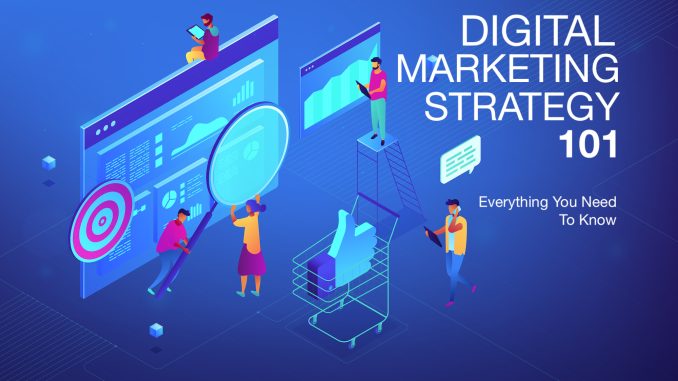
**Introduction**
– Brief overview of digital marketing and its importance in today’s business landscape.
– The shift from traditional to digital marketing due to the rise of the internet and social media.
– The goal of this article: to provide a comprehensive guide to the essential digital marketing strategies for businesses in the digital age.
**1. Understanding Digital Marketing**
– Definition and scope of digital marketing.
– Key components: SEO, content marketing, social media marketing, email marketing, PPC, influencer marketing, and affiliate marketing.
– The importance of a digital presence for businesses of all sizes.
**2. Building a Strong Digital Marketing Strategy**
– Steps to develop an effective digital marketing strategy.
– Identifying target audience and market research.
– Setting SMART goals (Specific, Measurable, Achievable, Relevant, Time-Bound).
– Budget allocation and resource planning.
– Importance of creating a cohesive strategy that integrates various digital marketing channels.
**3. Search Engine Optimization (SEO)**
– Overview of SEO and its role in digital marketing.
– On-page and off-page SEO techniques.
– Importance of keyword research and content optimization.
– Technical SEO: improving website speed, mobile responsiveness, and secure connections (HTTPS).
**4. Content Marketing**
– Definition and significance of content marketing in engaging and converting customers.
– Types of content: blogs, videos, infographics, podcasts, and e-books.
– Content creation best practices and content distribution strategies.
– The role of storytelling and branding in content marketing.
**5. Social Media Marketing**
– Importance of social media in digital marketing.
– Choosing the right platforms (Facebook, Instagram, Twitter, LinkedIn, TikTok) based on audience demographics.
– Strategies for organic growth and paid advertising.
– Leveraging user-generated content and influencer partnerships.
**6. Pay-Per-Click (PPC) Advertising**
– Introduction to PPC and how it differs from organic marketing strategies.
– Overview of popular platforms (Google Ads, Bing Ads, social media ads).
– Understanding CPC (Cost Per Click) and ROI (Return on Investment).
– Tips for creating effective ad campaigns and optimizing performance.
**7. Email Marketing**
– Importance of email marketing in maintaining customer relationships.
– Building and segmenting email lists.
– Crafting effective email campaigns: subject lines, content, and CTAs (Call to Actions).
– Automation and personalization strategies for enhanced engagement.
**8. Measuring and Analyzing Digital Marketing Success**
– Importance of data and analytics in digital marketing.
– Key performance indicators (KPIs) to track (traffic, conversion rate, engagement rate, etc.).
– Tools for measuring success: Google Analytics, SEMrush, HubSpot, etc.
– Adjusting strategies based on data insights.
**9. Future Trends in Digital Marketing**
– Emerging trends in digital marketing: AI and machine learning, voice search optimization, augmented reality, etc.
– The growing importance of video marketing and interactive content.
– Data privacy and ethical considerations in digital marketing.
– Preparing for future changes in the digital marketing landscape.
**Conclusion**
– Recap of the key strategies discussed.
– Emphasis on the importance of staying updated with digital marketing trends.
– Encouragement to start implementing these strategies for sustained growth in the digital age.
**Call to Action**
– Encourage readers to subscribe to a newsletter for more digital marketing tips and updates.
– Invite readers to share their experiences or ask questions in the comments section.
—
Would you like to expand on any section or add more details?
